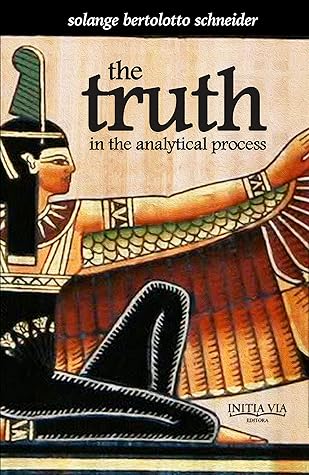Kindle Notes & Highlights
Read between
November 26, 2022 - June 24, 2023
If truth is eternal as Plato taught, and it is outside our senses, then it is something that is discovered, not invented, as Jung and others seemingly knew. Oppressing or suppressing it will only dim the light of understanding.
The field of Human relations must learn how to deal with the chaos of ethics, and truth must regain its characteristic meaning as a structuring symbol, not only for individuals but also for cultures.
According to my understanding, Jung’s active imagination exercises and his deep elaboration of inner contents were experienced in the psychoid archetype, between consciousness and unconsciousness.
Truth demands a commitment from the individual to all traits of his or her personality and it depends on the transcendent aspect of the psychoid archetype.
Truth needs the entire individual to be acknowledged
Truth is spontaneous, which is its main quality. Truth simply comes out of our mouths. Lies need to be elaborated, explained, justified.
Cassandra tells her prophecies as dream contents, in words and images, but does not elaborate on them. For this, she is considered mad and not accountable for her words.
Wilhelm Reich (1945) studied the influence that culture and social adaptation have on individuals from early childhood. Reich) said that children have their spontaneity repressed by education and therefore learn how to ignore things they see or to show appreciation for things they do not like. To be well educated means to be polite, kind, hide negative emotions and pretend everything is fine. To be adapted means to believe that family is always a place of love and security, even if it does not correspond to reality.
so from an external judgement, we may experience affirmation of our “educational” and social “adaptive” successes as confirmation of a “true” self, while the actual internal experience of Self is repressed until some external circumstances (i.e. bad things happening to good people) jog the repressed Self to effect consciousness.
Nowadays, people are criticized for manipulating facts and photos published in social media, but this is an ancient behavior; the tools have just gone from brush and chisel to Photoshop and Snapchat filters. The shadow continues to be hidden in the same way; the persona continues to be praised, only the means have changed.
Pride is an open door for activating feeling-toned complexes and lying is one of its favorite tools.
Truth, then, requires knowledge (about ourselves), not faith. Notwithstanding, it is easier to believe than to know, to acquire self-knowledge. For this reason, people are mostly satisfied with faith. Faith, however, can manipulate Truth to perpetuate itself.
Jung and Turing’s capacity to take a step back and observe a situation in a distant way signals a mature behavior, where the ego is put aside, preserving the impartiality of judgment.
Jung realized very soon that adapting too much was denying his inner integrity. He did not allow other’s prejudices to contaminate his own self-perception. That is, he did not identify himself with the projections he received.
Believing in a lie, a gossip or defamation without proof has the same effect of a curse, affecting the victim and all those surrounding him or her.
Post-truth is not something new; what we now call “post-truth” is a well-known phenomenon, called “lie” or “gossip”. Gossip and slander are dangerous tools for controlling people’s behavior. When a lie is told many times, it does not come true, but its repetition changes perceptions, creating an illusion about a fact, always at the service of power. Power is the opposite of love, as Jung stated, but it is also the opposite of Truth, as Gandhi said.
Discrimination and prejudice are powerful shadow makers; they are antagonistic to empathy and love, since they represent the will to power and to annihilate and conform the individual to a standard.
Being different is still a taboo in our society. This is the greatest irony of all time, since we are all completely different from each other.
Stagnation is incompatible with the individuation process.
Whenever a society prevents an individual from following their own individuation process, it prevents itself from progressing.
Truth is changeable because our ability to observe, interpret, and judge is changeable. Truth is dynamic, alive and moving. Clinging to an isolated fact or a scientific or historical truth is dangerous. Truth must be free of judgment; otherwise it is not true.
Humanity wants to dominate matter and nature, just as it wants to dominate the spirit and its manifestations. Domination is an exercise of power, which distances us from Truth. The attempt to manipulate and dominate Truth is a combination of both desires for domination, since Truth has a material (the quality of the fact itself) and a spiritual aspect (the quality of perception and evaluation of the fact). The search for Truth seems to represent an enantiodromy that could have led us to the great existential crises we


